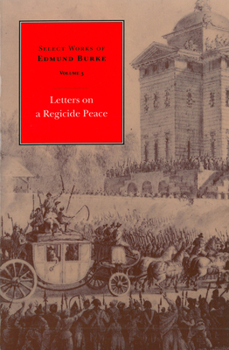The Letters on a Regicide Peace
Select Format
Select Condition 
Book Overview
This famed Payne edition of Select Works of Edmund Burke is universally revered by students of English history and political thought.
Volume 3 presents Burke's Four Letters on the Proposals for Peace with the Regicide Directory of France--generally styled Letters on a Regicide Peace (1795-1796). The Letters, Payne believed, deserve to "rank even before Burke's] Reflections, and to be called the writer's masterpiece." Faithfully reproduced in each volume are E. J. Payne's notes and introductory essays. Francis Canavan, one of the great Burke scholars of the twentieth century, has added forewords and a biographical note on Payne.
Francis Canavan (1917-2009) was Professor of Political Science at Fordham University from 1966 until his retirement in 1988.





